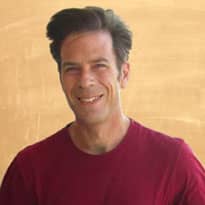So who today could handle an epée? I like to assign pundits to either of two broad types. On one side, you have the harrumphing, authoritative David Brookses; on the other, the huffing, seething Glenn Greenwalds. With suspense built right into its contrasts, this style match-up could mean endless fun for spectators and speculators alike. This time out, will the Greenwald trip and impale himself during a particularly furious running attack? Or will the Brooks doom himself simply by forgetting to move? And what about caffeine? How soon before the match would the rules allow it to be taken? Would the judges test for it by forcing combatants to write in a straight line, or by some more invasive means?
On the field of honor, Christopher Hitchens would be both a joy to watch and a terror to face. With an almost monstrous blend of skill and ego, he'd be the duelist everyone loves to hate and hates to love—the John McEnroe of the salle d'armes. If I were writing a movie script, I'd have him goring and slashing his way through a small army of tomato cans like Ralph Reed until some dark horse—First Things columnist Joe Carter, maybe—shows up and fights him to an honorable draw. Hitchens must rise to fight another day, or else there can be no sequels and no payoff.
When the early Jesuit fathers preached to Hurons and Choctaws
They prayed to be delivered from the vengeance of the squaws.
This is Kipling, writing slightly less than a century ago on the deadliness of woman. His flat generalizing dates him (and ensures that nobody today would care to), but when it comes to writers, he might have a point. If Florence King, formerly of the National Review, were to come out of retirement at the age of 75, she'd make Rocky Balboa's last onscreen comeback look not only plausible but plain dull. By flying at Sopranos creator David Chase with cold steel, Camille Paglia might not have lain to rest the Italian-American stereotypes she deplores, but she'd have raised their brow from low to high. As vengeful acts go, hers would have been worthy not of Nicky Scarfo or Joe Merlino, but of Benvenuto Cellini.
But any world where an academic might be tempted to duel a TV producer is a world where the duel can't possibly survive. In the days when men dueled, they made a point of dueling only their equals. In practice, this parity was often rough: Pushkin, with his ancient boyar lineage took his mark against d'Anthes, whose claim to gentility was shaky at best. In Wilhelmine Germany, a fencing scar on the face, like a polo pony on the shirt today, made a middle-class person look—and probably feel—like he'd gained the top. Nevertheless, drawing down on just any chump in the streets was not comme il faut.
Nowadays, thanks to the bloating of the blogosphere, most people of letters—my own scruffy self included—are exactly chumps on the streets. If experience means anything, our honor is more likely to receive mortal wounds from our readers—people just like us only with less time on their hands—as from each other. A friend once showed me a popular Catholic blog whose owner defended herself against all comers. The scene wasn't pretty; if words were blows, it would have looked less like a duel than a tavern brawl with Bowie knife, bottle, and boot. In this world, the best writers keep things mellow. If the pen isn't actually mightier than the sword, it's a lot easier on health-care costs.





